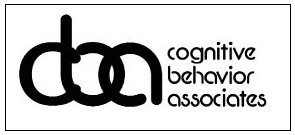Many people ask themselves: am I socially anxious or introverted? Everyone experiences moments when they don’t want to interact with large groups of people. You just need time to wind down and recharge. However, if you find that you tend to prefer spending your time alone or in small groups, you’ve probably fielded more than a few questions surrounding your approach to socializing. Your family and friends may even worry that you have a form of social anxiety, but it is just as likely that you’re simply more introverted than others.
Luckily, there are a few easy ways that you can determine whether or not you do experience social anxiety. If you do, we provide the best anxiety treatment Los Angeles has.
Examining the Underlying Emotion
True introverts without social anxiety take real pleasure in having large chunks of time to themselves. They tend to be relatively comfortable in social settings and reserve the ability to socialize for the moments that suit them. By sharp contrast, a person with social anxiety avoids social engagements out of fear. The truth is that many people with social anxiety are also naturally extroverted. They crave interaction with other people, but they are afraid of being judged, ignored, or unwelcome.
With your therapist in Beverly Hills, you can begin working against these patterns. As you do, you can take control over your life once more.
Nature vs. Nurture
The current theory, as it is understood by prominent psychologists, is that introverts are typically born. From childhood onward, introverts tend to find activities that allow them to enjoy the pleasure of their own company. These periods of isolation are mixed with regular, healthy social interaction that gives them the social skills they need. Therefore, an introvert without social anxiety has no fear of interacting with other people. If they say “no” to a party invitation, then it’s probably because they’d rather be reading a book in front of a nice fire that night.
Social anxiety is a learned behavior pattern. There are literally thousands of minor traumatic experiences that can lead to its manifestation, but it typically starts in childhood. Bullying is a common trigger for later social anxiety, but any repeated exposure to judgmental people or a lack of confidence-building exercises could result in social anxiety. When a person with social anxiety says “no” to a party invitation, they’re more likely to avoid the situation out of fear that they won’t fit in or be invited out of pity.
Determining When You Need Help
If you or someone you care about is a true introvert, then you just need to be left alone. Let your friends know that once you’ve recharged a little bit, you’ll be ready to socialize again. Introverts have their own way of balancing their personal needs, and it’s a perfectly healthy way of coping with the stresses of everyday life. On the other hand, someone with moderate to severe social anxiety might benefit from a little counseling.
Cognitive behavior therapy is a common treatment for people who struggle with social anxiety. It works by helping the patient to identify the thoughts that trigger their negative emotions. From there, they can begin to unpack those emotions. Their therapist walks the patient through those thoughts and emotions in order to help them see that there’s little to no logical basis. Over time, the patient’s belief that they are unwelcome or unwanted is challenged one by one. This helps to slowly re-build the patient’s confidence, allowing them to feel less anxious while interacting with other people. Of course, there are times when people can be judgmental, so cognitive behavior therapy also works to prepare patients for those circumstances while recognizing that they represent a small percentage of all interactions.
The Takeaway
Social anxiety is born of negative interactions and a lack of self-confidence. Cases are often mild to moderate, allowing the people affected to live very normal lives despite their anxiety. Fortunately, even the most severe cases are treatable. It just takes a little help and a lot of patience.

